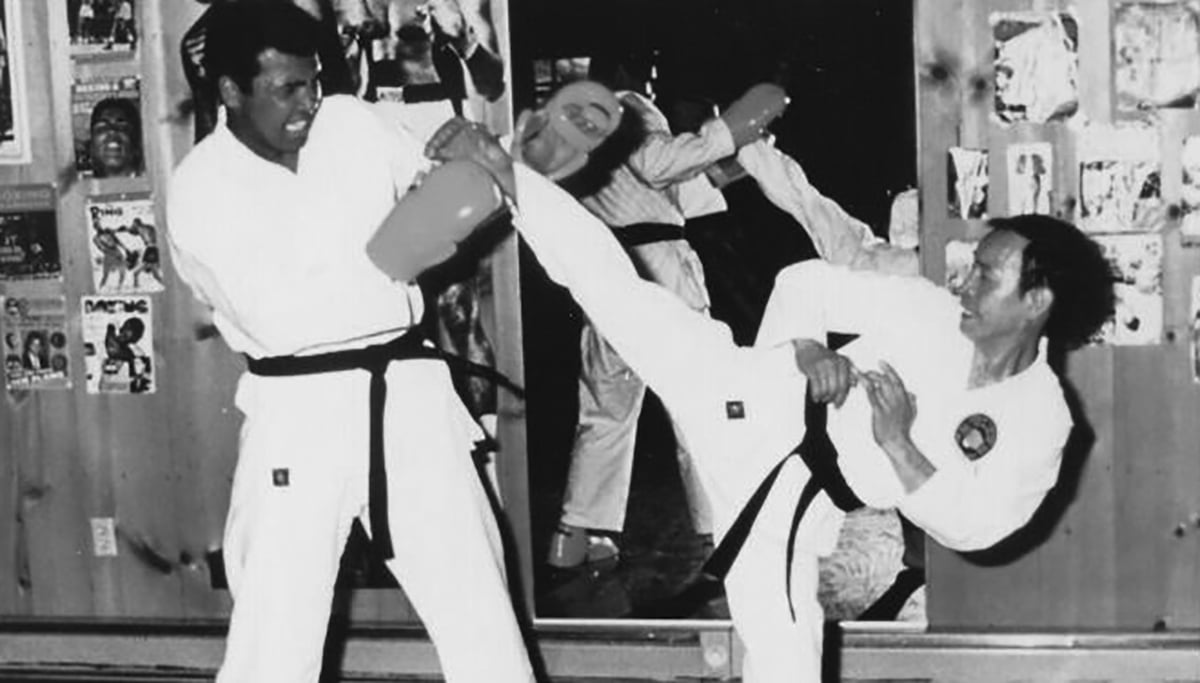The Jhoon Rhee Story

Part Four: America at Last (1953 – 1957)
Now an officer, and with a new lease on life, Rhee applied for army aviation training. He soon switched his focus to weather and aircraft maintenance, and after his training was complete, he was assigned to teach others.
A year and a half into Rhee’s instructor assignment, he heard about an opportunity for officers to train in aircraft maintenance in the United States. Here, Rhee hoped, was a chance to make his dream come true. He applied for the program, along with about 50 other officers. Only three would be accepted. Once again, Rhee’s proficiency in English served him well. He passed the test with the highest grade. He was going to America.
Rhee landed in San Francisco in early June of 1956. The flight had been his first time in a plane, and Rhee says that when he first took his seat, he pinched his own cheek to make sure it wasn’t a dream.

San Francisco, 1956.
The feeling of unreality became even more pronounced after his arrival. Rhee later recalled that he was completely unprepared for the splendor of the U.S.—the cars, the skyscrapers, the wealth of post-war America. He was particularly taken with the abundance of neon signs. And yes, the women were indeed beautiful, just as they were in the movies he had seen in Korea.
He was only in San Francisco for a day before flying to Austin, Texas, and then traveling by bus to Gary Air Force Base in San Marcos. As different as this new country was, Rhee found base routine familiar because of his military experience. He was the only Asian for miles around, but he felt welcomed and respected as an officer in a foreign army.

Mr. and Mrs. Robert L. Bunting, Rhee’s sponsors for his move to America.
Rhee knew that his stay in America would only be temporary, limited to the length of the training program, but while he was in the U.S. he was determined to see if he had any chance of returning for good some day. He joined the local Methodist Church and made many new friends; over time, he let them know about his wish to stay and study in America. His new friends were supportive and eager to help, but in order to remain in America, Rhee would need an official sponsor. This was a significant responsibility—the sponsor would not only have to vouch for Rhee’s character, but promise to support him financially if necessary.
As Rhee’s time in the training program ran out, no sponsor had been found, so it was with a heavy heart that he attended church on the last Sunday before returning to Korea. During the service, however, the pastor made one final plea, asking the congregation if anyone was willing to take on the responsibility of sponsorship. To Rhee’s surprise, an elderly couple, Mr. and Mr. Robert L. Bunting, agreed.
